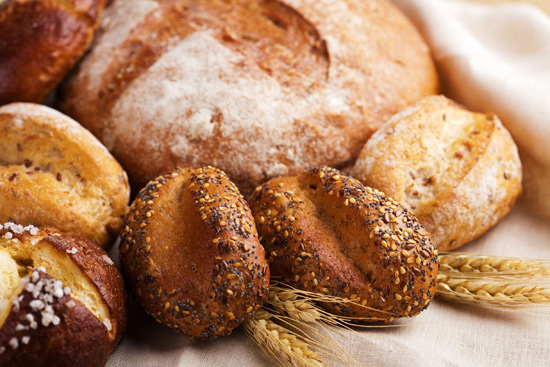Dr. Frankie Tan began his career with a Physical Education and Sports Science background. He taught P.E. and was a coach in a local college for about 7 years before joining the SSC as an Exercise Physiologist. Since then, he has been with the SSC for about 12 years, largely focusing on high performance sports and sports physiology. This was inclusive of a 4-year sabbatical to pursue a PhD in Sports Physiology in Australia. Today, Dr. Tan is responsible for the planning and implementation of Sports Physiology services by the Sport Science Centre, as well as the Covering Head of the Nutrition Unit of the Singapore Sports Institute (SSI).
While many of us are gearing up for race day for one of the largest running event in Singapore, the Standard Chartered Marathon Singapore 2013, Dr Tan shares his expert advice to advanced runners on the exercise-intensity continuum and the importance of the diet for the marathon runner.
The 50:50 Myth: The Relationship of High Volume and High Intensity Training
First, let’s look at the exercise intensity as a continuum instead, and we can simply articulate it as Low/ Easy, Moderate and High/ Hard.
The myth of splitting your workouts evenly between high volume and high intensity is misguided. If one keeps his/her training to just high volume (easy) and high intensity (hard), and adopt a 50:50 ratio (e.g. alternating between easy and hard training days), it is likely that he/ she will not be able to train sufficiently for both the easy and hard sessions, and chances are the ‘hard’ sessions will not be as hard as it should be.
Here are some pointers to illustrate an optimal training regimen:
- Majority of your training should be “Easy/ low-intensity” (75-85%): Many people do just slow runs when they first train for a marathon. With every step you take, even at a slow pace, your body learns to run more efficiently and your endurance improves. Importantly, the physiological adaptations resulting from low-intensity training will continue to respond over the long term (i.e. larger room for improvement) compared to higher-intensity training; even elite endurance athletes who have been training for many years continue to spend a large proportion of time in this zone.
- Small to moderate amount of “Hard/ high-intensity” training (10-15%): Small amount of speedwork/ interval training is good, but too much of that may bring about diminishing returns (injury/ stress/ overtraining). Good to do it on the running track so you can better gauge your pace. Interval training may be overly touted/promoted (often at the expense of low-intensity training) as research is skewed towards it because of the quick results it brings.
- Small amount of “Moderate-intensity” training (10%): In between your long slow runs and interval training is your “middle-intensity” runs. Training in this zone feels hard but not too hard, and the negative side is that when you do too much of this you’ll not have sufficient energy to carry out your high-intensity runs, and time for your long slow runs.

A Contemporary Approach to Nutritional Physiology and the Role of ‘Periodisation’
This may apply more for high performance runners. Contrary to traditional belief that endurance training should always be performed in a glycogen-compensated state (i.e. loaded with carbohydrate), there is increasing data in recent years demonstrating that periodically decreasing carbohydrate availability may further enhance endurance training adaptations.
Runners can either train with low endogenous (originating within the body/ muscle) glycogen availability or low exogenous (what is consumed) carbohydrate availability (e.g. training upon waking in the morning after an overnight fast).
One strategy may be to utilise these sessions during the General Preparation training phase where training volume and frequency is high, and subsequently reducing it to none during the Taper phase nearer major competition, where carbohydrate feeding becomes increasingly important.
The key is to periodise the low-carbohydrate approaches into the training phases, to provide the optimal stimulus for adaptation, while minimising the potential deleterious effects of delayed recovery, decreased training quality and/or immune system distress.
Keeping Your Fuel Burning: Ensuring Sufficient Energy Intake
Seasoned runners know that minding your diet is just as important as training. The role of nutrition during prolonged endurance training and events like the marathon is an important one. The distance of the marathon is uniquely suited for nutritional and hydration interventions.
My nutrition/dietician colleagues, Ms Huang Liyan & Ms Cheryl Teo have helpfully provided the following points on the subject.
- Ensure daily diet is sufficient/high in carbohydrates. One can train with sub-optimal glycogen stores, but need to ensure that daily carbohydrate intake meets training requirements (i.e. consume more carbohydrates post training or during recovery).
- Encourage carbohydrate intake if training is longer than 60 minutes. Runs lasting longer than 60 minutes may deplete body’s glycogen stores. Providing exogenous carbohydrates (what you consume) can help to increase training duration and intensity. The human body can oxidise up to 60g of exogenous carbohydrates per hour, hence consuming sports drinks or energy gels can help to provide the carbohydrates required.
- Be sure to begin training in a well-hydrated state. Studies have found that athletes tend to begin training in a slightly dehydrated state, at ~1-2% dehydrated. While not detrimental, the training itself will cause the athlete to lose more water and increase the risk of dehydration later during the training.
- Practise eating and drinking prior to competition. Runners should practise eating and drinking while training in preparation for their competition. This can help them to identify any foods that may cause gastrointestinal disturbance, and therefore to avoid accordingly. This can also help them to plan when to eat and drink during their race.

The Standard Chartered Marathon Singapore 2013 takes place on 1st December. Registrations close on 30th of September, so be sure to sign up before it’s too late, and follow the Standard Chartered Marathon Singapore Facebook page for the latest updates.





